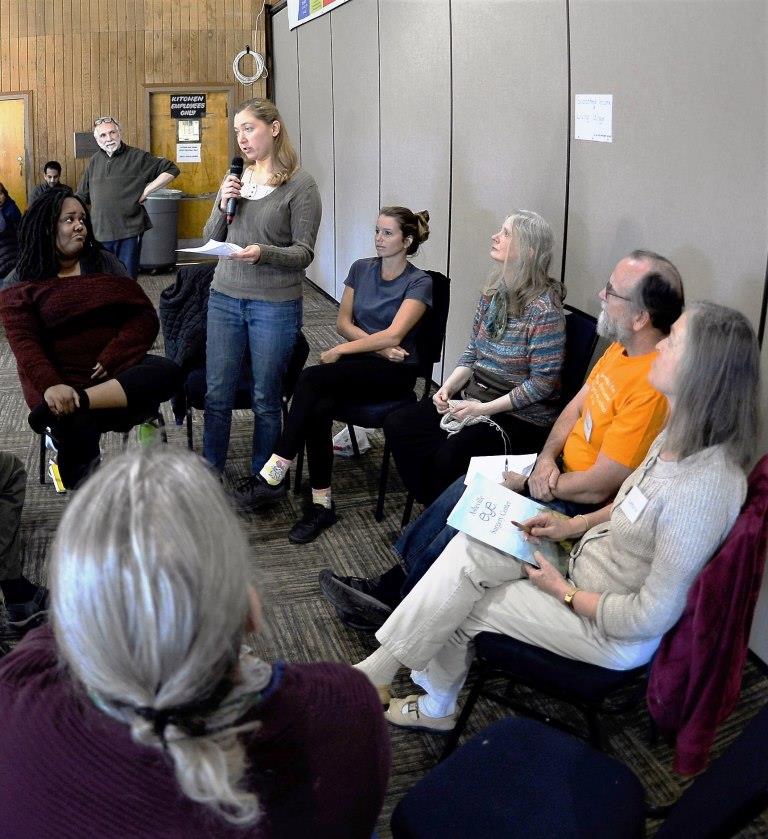by Howard Nemon and Dada Maheshvarananda
When recommending anything new and unique, the burden of proof always falls on those proposing the new answer or solution. And this task becomes particularly difficult when there are no existing examples or models that can serve as evidence. Proutists around the world face this challenge. One approach for presenting Prout to the public in a convincing way requires the ability to explain how Prout ideas might effectively and feasibly address important social, political, and economic issues of our times.
This was the reasoning behind the Prout workshop at the recent gathering of spiritual activists in Ojai, California. We wanted to engage participants in tasks that would help them hone their skills for bringing Prout down from the bookshelf and boldly placing it into the midst of public debate. The session was divided into three sections:
1. Participants divided themselves into six groups to discuss important socio-economic issues and come up with some short, Prout-based policy proposals. Each group had Prout facilitators to guide the discussion and help craft a short summary of the issue from Prout’s perspective and possible responses. The topics selected were:
a) Immigration
b) Guaranteed income and living wage
c) Corporations / Cooperatives
d) Climate Change
e) Health Care
f) Free speech, hate speech, censorship
2. The same groups were then given the task of developing a two-minute skit that role played how to present Prout to a specific audience. The groups were assigned one of the following target audiences: a) college students, b) one disadvantaged group (e.g. people of color, women, LGBTQ, people with disabilities, etc.), c) unemployed people, d) small business owners, e) academics, and f) working class people. After 15 minutes, they presented their skits which were both entertaining and educative.
3. Finally, a debate was held on the following topic: “Prout is a Practical Socio-Economic Model That Can and Should be Implemented Today”
Four emerging proutists were on the affirmative team which defended the above statement and another five were on the negative team that attempted to disprove it. The debate teams spent a couple of days in the retreat preparing their arguments. As the debate topic was quite broad, they decided to focus on a few key points: spiritual-based economics, cap on wealth accumulation, economic democracy, sadvipra leadership, and the three-tiered economic system. Both sides brought forth solid points and were also effective in rebutting the other team’s arguments. The audience showed great appreciation for both teams.
Feedback from attendees showed that this workshop brought home the need to gain a better understanding of social and economic problems and how Prout proposes to resolve them. We need to develop a quick grasp of core Prout concepts and be able to express them in ways that speak to the deep concerns of the people we meet or want to reach out to. We encouraged everyone to access the new Prout publication, Tools to Change the World, a Prout Study Guide program that will help fill this need.

